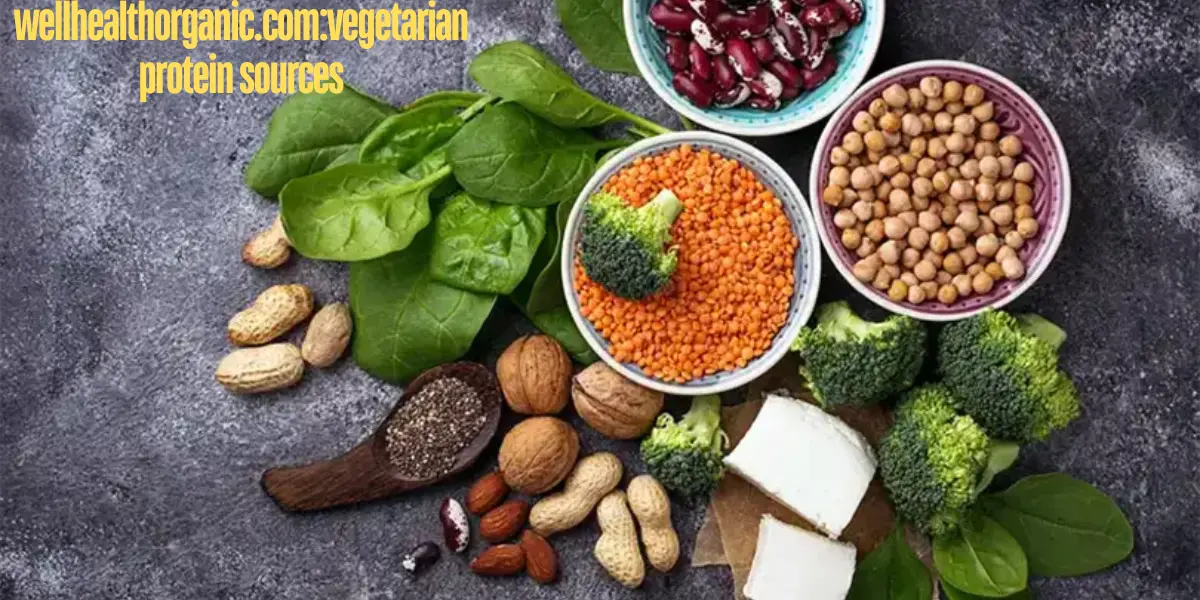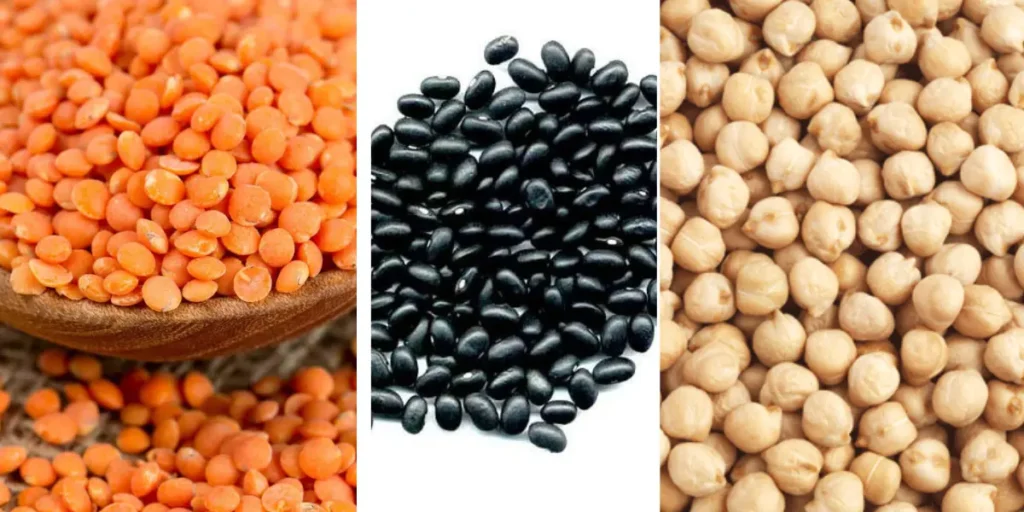Wellhealthorganic.com:vegetarian protein sources

Maintaining a balanced diet is crucial for overall health and well-being, and protein is a fundamental component of this balance. For vegetarians, ensuring adequate protein intake can sometimes be challenging. This guide will explore various vegetarian protein sources that can help you meet your dietary needs. We will cover a range of foods, their nutritional benefits, and how to incorporate them into your meals. For more details, visit wellhealthorganic.com:vegetarian protein sources.
Why Protein is Essential?
Protein plays a vital role in the body. It is responsible for building and repairing tissues, producing enzymes and hormones, and supporting immune function. For vegetarians, getting enough protein is essential to maintain muscle mass, energy levels, and overall health. This importance is emphasized on wellhealthorganic.com:vegetarian protein sources.
Legumes: A Powerhouse of Protein

Lentils
Lentils are a staple in many vegetarian diets. They are rich in protein, with approximately 18 grams of protein per cooked cup. Lentils are also high in fiber, iron, and folate, making them a nutritious choice. They are versatile and can be used in soups, stews, salads, and even as a meat substitute in dishes like lentil loaf. Find more about lentils on wellhealthorganic.com:vegetarian protein sources.
Chickpeas
Chickpeas, or garbanzo beans, are another excellent source of protein. One cup of cooked chickpeas contains about 15 grams of protein. They are also a good source of fiber, vitamins, and minerals. Chickpeas can be used in a variety of dishes, including hummus, falafel, and salads. Detailed information is available on wellhealthorganic.com:vegetarian protein sources.
Black Beans
Black beans provide around 15 grams of protein per cooked cup. They are also high in fiber, which aids in digestion and helps maintain stable blood sugar levels. Black beans can be used in soups, stews, burritos, and salads. More insights can be found on wellhealthorganic.com:vegetarian protein sources.
Nuts and Seeds: Nutrient-Dense Snacks
Almonds
Almonds are a great source of protein, offering about 6 grams per ounce. They are also rich in healthy fats, fiber, vitamin E, and magnesium. Almonds can be eaten as a snack, added to salads, or used to make almond butter. Check wellhealthorganic.com:vegetarian protein sources for more ideas.
Chia Seeds
Chia seeds are a powerhouse of nutrition. They contain 4 grams of protein per ounce and are high in omega-3 fatty acids, fiber, and antioxidants. Chia seeds can be added to smoothies, yogurt, and baked goods or used to make chia pudding. Visit wellhealthorganic.com:vegetarian protein sources for recipes.
Hemp Seeds
Hemp seeds provide around 10 grams of protein per ounce. They are also a good source of omega-3 and omega-6 fatty acids, making them excellent for heart health. Hemp seeds can be sprinkled on salads, blended into smoothies, or used in baking. Learn more on wellhealthorganic.com:vegetarian protein sources.
Whole Grains: A Balanced Source of Protein
Quinoa
Quinoa is a complete protein, meaning it contains all nine essential amino acids. One cup of cooked quinoa has about 8 grams of protein. It is also high in fiber, magnesium, and iron. Quinoa can be used as a base for salads, in soups, or as a side dish. Discover more on wellhealthorganic.com:vegetarian protein sources.
Brown Rice
Brown rice provides around 5 grams of protein per cooked cup. It is also high in fiber and B vitamins. Brown rice can be used as a base for stir-fries, in soups, or as a side dish. For more information, visit wellhealthorganic.com:vegetarian protein sources.
Oats
Oats are a great breakfast option, offering 6 grams of protein per half-cup of dry oats. They are also high in fiber and can help lower cholesterol levels. Oats can be used to make oatmeal, overnight oats, or added to baked goods. Explore more on wellhealthorganic.com:vegetarian protein sources.
Dairy and Dairy Alternatives
Greek Yogurt
Greek yogurt is high in protein, with about 10 grams per 100 grams serving. It is also a good source of calcium and probiotics. Greek yogurt can be eaten on its own, added to smoothies, or used in cooking and baking. More details can be found on wellhealthorganic.com protein sources.
Cottage Cheese
Cottage cheese offers approximately 11 grams of protein per half-cup. It is also low in fat and calories, making it a great option for those looking to lose weight. Cottage cheese can be eaten as a snack, added to salads, or used in cooking. Check out wellhealthorganic.com protein sources for more ideas.
Soy Milk
Soy milk is a popular dairy alternative that contains about 7 grams of protein per cup. It is also high in calcium and vitamin D. Soy milk can be used in place of cow’s milk in cereal, coffee, and cooking. Discover more on wellhealthorganic.com protein sources.
Soy Products: Versatile Protein Sources
Tofu
Tofu is made from soybeans and is a versatile protein source, providing about 10 grams of protein per half-cup. It is also a good source of iron and calcium. Tofu can be used in stir-fries, soups, salads, and even desserts. Visit wellhealthorganic.com:vegetarian protein sources for recipes.
Tempeh
Tempeh is a fermented soy product that contains around 15 grams of protein per half-cup. It is also high in probiotics, which support gut health. Tempeh has a firm texture and can be used in sandwiches, stir-fries, and salads. More details can be found on wellhealthorganic.com:vegetarian protein sources.
Edamame
Edamame are young soybeans that are rich in protein, offering about 17 grams per cup. They are also high in fiber, vitamins, and minerals. Edamame can be eaten as a snack, added to salads, or used in stir-fries. Explore more on wellhealthorganic.com protein sources.
Vegetables: Surprising Sources of Protein
Spinach
Spinach is a nutrient-dense vegetable that contains about 5 grams of protein per cooked cup. It is also high in iron, calcium, and vitamins A and C. Spinach can be used in salads, smoothies, and cooked dishes. More insights can be found on wellhealthorganic.comprotein sources.
Broccoli
Broccoli provides around 4 grams of protein per cooked cup. It is also high in fiber, vitamins C and K, and antioxidants. Broccoli can be steamed, roasted, or added to soups and stir-fries. Discover more on wellhealthorganic.comprotein sources.
Brussels Sprouts
Brussels sprouts offer approximately 4 grams of protein per cooked cup. They are also rich in fiber, vitamins, and minerals. Brussels sprouts can be roasted, steamed, or added to salads. For more information, visit wellhealthorganic.comprotein sources.
Conclusion
Incorporating a variety of vegetarian protein sources into your diet can help you meet your nutritional needs and maintain a balanced diet. By including legumes, nuts and seeds, whole grains, dairy and dairy alternatives, soy products, and vegetables, you can ensure you are getting enough protein and other essential nutrients. Experiment with different recipes and combinations to keep your meals interesting and delicious. For more comprehensive information, visit wellhealthorganic.com:vegetarian protein sources.
Read our more Blogs…



Leave a Comment